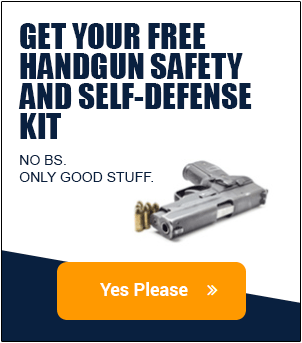No one plans to get stopped for a traffic violation, but let’s face it, it happens to everyone sooner or later. I’ve only been stopped a couple of times in the past 10 years for going too fast. The last time I was on my way to work in the morning on the same road I drive on every day, day and night, and I know the speed limit on one particular stretch is only 45, down from 55 on the rest of the road.
Do I normally always slow down on this stretch? Yes…normally. But on this day maybe I made the coffee with decaf or something by accident because I didn’t slow down. A police officer was driving toward me on the other facing lane of the road (it’s a two-lane highway) and clocked me going 10 miles over the speed limit. No excuse. I wasn’t even aware that I was going too fast because I was zoned out.
So the cop does a quick u-ie and gets behind me with his lights flashing. I had no choice but to pull over and got a nice fat ticket which was even more expensive than usual because the speed limit changes there because it’s a school zone. I also learned a valuable lesson that a cop can clock you even when you’re going in opposite directions on the road.
Do I have a “duty to inform” the cop that I had put on my holster that morning? The fact is, no, I don’t, and the law is on my side in my home state of Oregon. Oregon does not require concealed carry permit holders to disclose to police officers that they are carrying. However, the 25-year-veteran of the sheriff’s office that we have spoken to before about traffic issues says you should reveal it as a matter of courtesy.
Here’s what he said: “If you’re stopped for a typical traffic stop, there is no requirement to tell an Oregon officer that you have a concealed weapon. When I stop people, some people tell me they have a weapon and some don’t. It might be a good idea to tell me, I might even recommend it as a courtesy to the officer, but there is no requirement in Oregon.”
When the police officer runs a driver’s license, it tells them that the license holder is permitted to carry a weapon. What it doesn’t say is if the driver has one on their body at that moment. To an experienced officer, says our source, just knowing that a driver has a concealed carry permit doesn’t change the tone of the interaction. But to a less experienced officer or one who is skittish about stopping people with weapons, it could put the officer on high alert, particularly if for whatever reason you have chosen not to reveal your permit. Duty to Inform is when you are required to tell a police officer without being asked that you are carrying a weapon.
Our officer said he will examine everything else that’s going on in the car, such as your general attitude (see the article we linked to earlier in the post about danger signs officers look for) and other activity in the car to determine if he should be worried. But still, why would you want to do anything that would worry a police officer when you’ve been pulled over for whatever reason? Our source says whether you’re carrying or not, keep your hands where he can see them. “That’s a big help, it’s a courtesy to the person stopping you,” he says. “here isn’t a cop anywhere that doesn’t appreciate it.”
Here’s how our officer friend says you should handle the concealed weapon issue: “If you do want to tell them that you’ve got a weapon, say, ‘I’ve got a concealed carry and I’m carrying. It’s here ___ (wherever it is).’ Then ask, ‘How do you want me to proceed?’ Then do what the officer asks you to do.”
In a traffic stop, some officers might want to take control of the weapon and will ask that you get the weapon and hand it over. This is more likely to happen if you’re intoxicated or under the influence or if you’re giving off attitude. In general, if it’s a simple traffic stop, the office probably won’t want to take control of the weapon unless there’s something else going on that seems threatening.
In this case, you don’t, at least in Oregon, you don’t have to hand the weapon over if you don’t want to. You do have the right to say no, you don’t want to hand it over. Our officer friend says he would prefer to keep the gun put away and have the person he’s stopped keep their hands off it. But each officer will approach the situation differently depending on their personal attitudes about concealed weapons and anything else that is going on that seems threatening. “If he (the cop) asks you to do something you don’t feel comfortable with then say, ‘I don’t want to do that.’
Bottom line, as a driver with a concealed carry permit, it is up to YOU to know YOUR rights and your responsibilities involving your concealed weapon in YOUR state. Every state is different. Some states, the law says you have to reveal when asked (Alabama, Arizona, Florida, Idaho, and others). In some states, like Georgia, you don’t have to tell even when asked. Some states, like Michigan, tell you that you ALWAYS have to reveal your carry. Contact the agency that issued your permit and make sure you know the law in your state.

